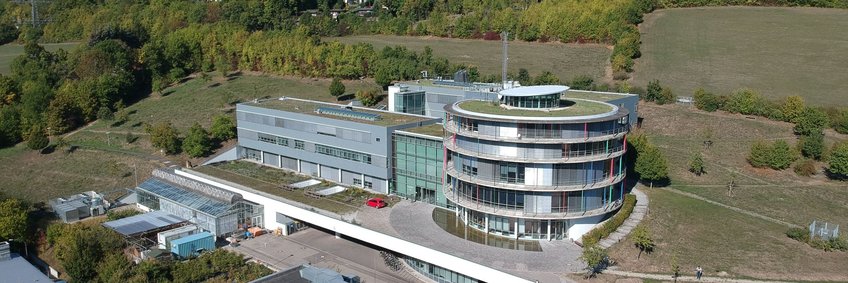
Figures, Facts & History
Founding
On 1 September 1997, the "Max Planck Institute for the Study of Global Biochemical Cycles" was officially founded in Jena. Soon after, it was renamed "Max Planck Institute for Biogeochemistry", today often abbreviated as MPI-BGC.
The founding directors at the time were Prof. Ernst-Detlef Schulze, Prof. David Schimel and Prof. Colin Prentice. They headed the first three departments, which were supported by central service groups and administration.
In autumn 2002, the Institute moved into the newly constructed building on the Beutenberg Campus.
Graduate School
In 2010, the International Max Planck Graduate School for global Biogeochemical Cycles, IMPRS-gBGC, was founded. In cooperation with Friedrich Schiller University Jena, IMPRS-gBGC offers a unique and flexible PhD programme that enables German and foreign students to pursue doctoral studies in topics related to global biogeochemistry and related Earth system sciences.
Additional Offices and Labs
In 2013, the ICOS-FCL laboratory started its work in the building 'Am Felsenkeller'. The laboratory is affiliated to the European Infrastructure ICOS and supplies the ICOS atmospheric measurement stations with calibrated standard gases and automated flask samplers.
In 2021, several research groups moved into rented offices at the newly constructed 'IT-Paradies' building.
Staff
After years of development and continuous growth, over 260 people currently work at the institute. Of the approximately 160 scientists, 60 percent come from abroad, from over 25 different countries. Of the 60 or so doctoral students, as many as 80% are of foreign origin.
Funding
As a member of the Max Planck Society, the Institute is jointly financed by the Federal Government and the Free State of Thuringia. In recent years, the institute has been able to successfully raise over 30% of its total budget through additional third-party funding.